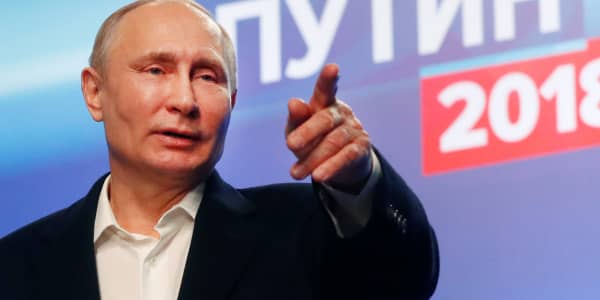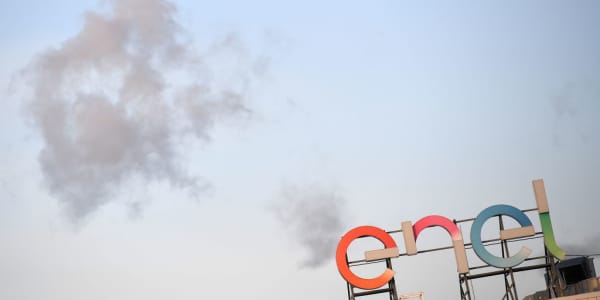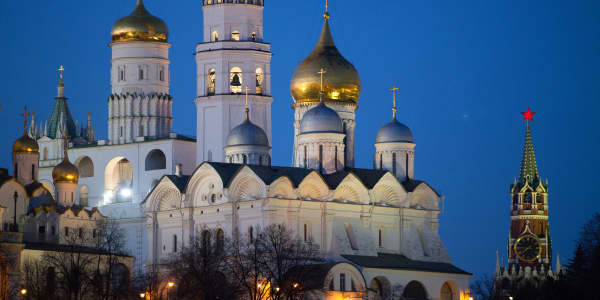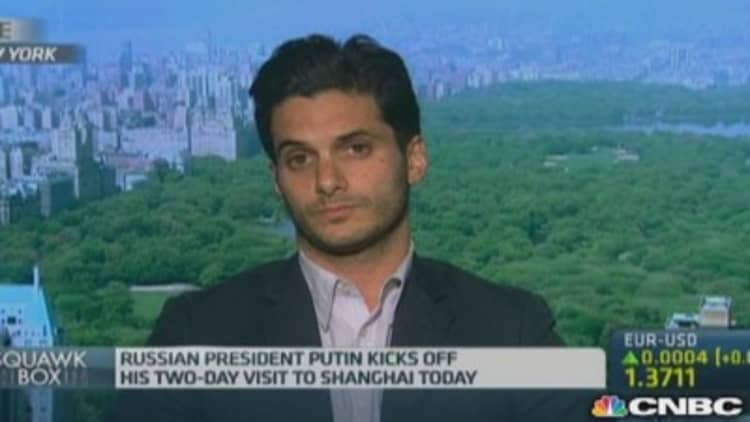
Russian President Vladimir Putin hopes to sign a multi-billion dollar gas agreement with China during a two-day visit that kicks off on Tuesday, ending more than a decade of false starts and wrangling over a deal seen as vital to both sides.
More broadly, the Russian leader, cold-shouldered in the West for his stance on Ukraine, can expect a warmer reception in China, itself increasingly assertive in territorial disputes with smaller neighbors in the South China Sea.
The crisis in Ukraine, which has left European countries looking at ways to reduce dependency on Russian natural gas supplies, and Beijing's drive to switch from coal use to cleaner fuels, have created a convergence of interests.
Read MoreIn taking Crimea, Putin gains a sea of fuel reserves
Analysts said that will be on display when Putin meets Chinese President Xi Jinping in Shanghai, although the success of his visit will rest in part on whether any energy agreement contains enough detail to take it beyond mere words.
Chinese state media on Monday quoted Putin as saying that preparations for a gas deal had entered "the final phase".
Negotiations in the past have collapsed over differences on pricing.
Read MoreRussia's Gazprom says low risk to Europe supplies
Russia's state-controlled Gazprom said at the weekend that it was still "one digit" away from a deal.
But on Monday, sources close to the company and in the gas industry said it wanted China to pay $25 billion now to secure future gas supplies, whereas China had so far been reticent, concerned that other suppliers would seek similar deals.
"We are pinning our hopes on Putin's May visit," a source at Gazprom said.
Read MoreGazprom head soothes Europe over gas supply
For its part, Beijing has been pushing to secure equity stakes in gas fields in eastern Siberia, which would be the main source of supply.
The agreement that could be signed is a 30-year contract for Gazprom to supply China National Petroleum (CNPC) with 38 billion cubic meters (bcm) of natural gas per year.
Should the deal be finalized this week, construction of a new pipeline is expected to begin by the end of 2014 and start delivering gas by 2018.
China, Russia apart on Ukraine
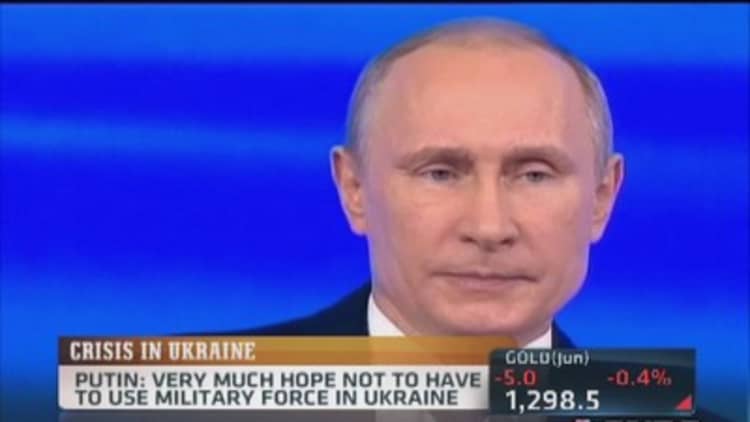
China's Xi has underscored the importance of ties with Russia, and Moscow was the first capital he visited after assuming the presidency last year. Xi also attended the Winter Olympics in Sochi at Putin's invitation.
Read MoreUkraine vs economic news: What matters more to market?
But, while the two see eye-to-eye on many international diplomatic issues, including the conflict in Syria, and generally vote as one on the United Nations Security Council, China has not been so willing to support Russia on Ukraine.
"Generally speaking, on the Ukraine issue we have taken an objective and just stance," Liu Guchang, a former Chinese ambassador to Russia and adviser to the foreign ministry, told Reuters. "All peoples and parties have to be respected. But we have seen very clearly the reality of the situation."
Beijing has adopted a cautious response to the Ukraine crisis, not wanting to alienate a key ally.
Read More
It has not commented directly on a referendum in which Crimea voted overwhelmingly to join Russia, lest it set a precedent for its own restive regions including Tibet.
While in Shanghai, Putin will also meet U.N. Secretary General Ban Ki-moon to discuss the Ukraine crisis.
Kiev holds a presidential election on Sunday, and in a move that could be intended to ease tensions in the region ahead of the vote, Putin ordered military forces to return to permanent bases after drills in three regions bordering Ukraine.
Putin's office said he had issued the order because the spring maneuvers were over, but in Brussels, a NATO military officer said the military alliance had seen no sign of Russian troops returning to their bases.


